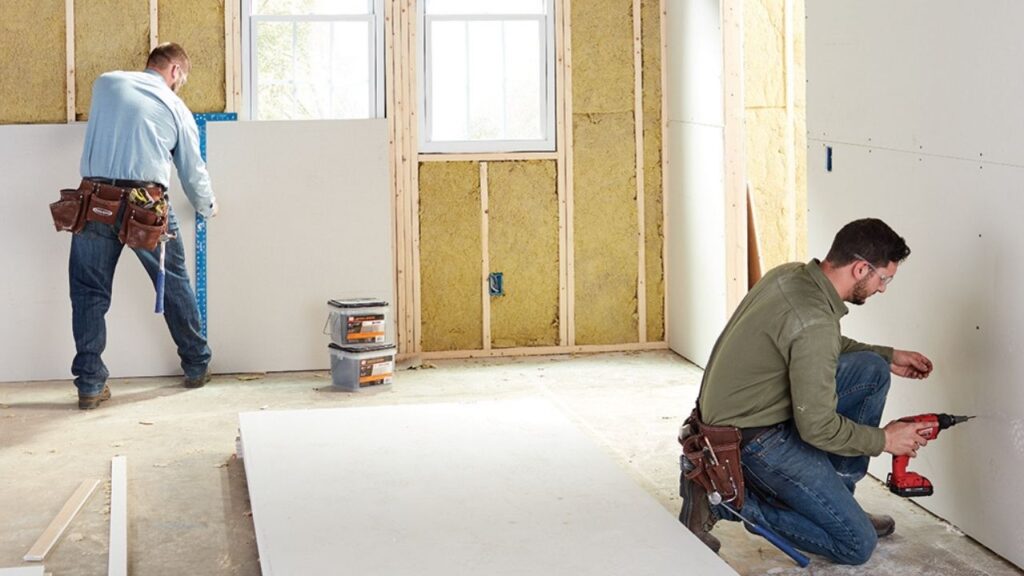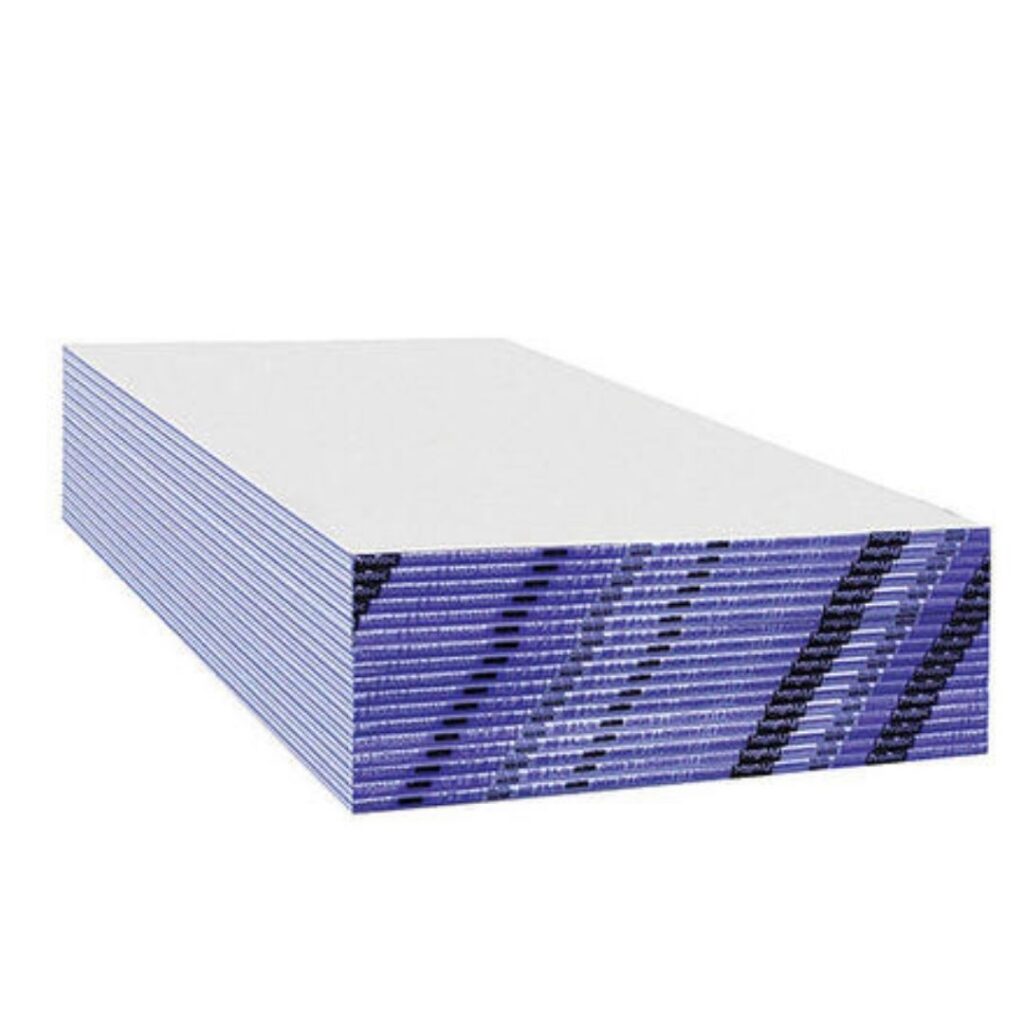Moisture and Mold-Resistant Drywall
Specially treated gypsum panels are a good choice for bathroom walls and other damp areas–but don’t use them in shower enclosures or other very wet spaces. It seems we are hearing more and more about mold these days. With all the damage caused by storms and flooding, dealing with mold and preventing mold growth is on a lot of people’s minds. The truth is mold is more prevalent today, particularly in structures built during the past 25 years. The focus on improving energy efficiency resulted in more airtight homes that do not “breathe” like older homes. Moisture can be trapped in walls and ceilings, which often results in mold growth on the drywall itself if non-mold-resistant drywall has been used. A few years ago, when mold-resistant drywall first came out, most manufacturers made it, as well as moisture-resistant drywall. Now, both of these qualities are offered in one panel.

Frequently Asked Questions ( FAQs)
Yes, any space requiring an area separation wall (a wall separating adjacent living units) like apartments, condos and townhouses, uses a fire-rated system. They are also required in any egress area in the apartment building.
Moisture/mold-resistant drywall is available in specifically treated, paper-faced panels, which are available in the green paper like the old moisture-resistant panels, but also in yellow, purple, and blue. It also comes in paperless panels; instead of being faced with paper, the front and back of the panels are covered with an inorganic fiberglass mat that does not promote mold growth. Both paper-faced and paperless are available in 1/2-in. or 5/8-in.-thick fire-resistant panels, and they come in lengths of 8 ft. or 12 ft. Moisture/mold-resistant drywall is used mainly as a wall covering over 16-in. o.c. framing. If you plan to install it on a ceiling, use 1/2-in. panels over 12-in. (or less) centers, or 5/8-in. panels over 16-in. centers. (If the ceiling is insulated, make sure that unfaced insulation was used to avoid creating a double vapor barrier, as discussed below.)

Panels are moisture- and mold-resistant all the way through and are made to withstand high humidity and low levels of moisture. This type of drywall is the best choice for places like bathrooms, the bottom 4 ft. of a laundry or utility room, or behind a kitchen sink. It is an excellent base for ceramic, plastic, or metal tile applied with an adhesive, as well as for other nonabsorbent finishes, such as paint and wallpaper. Other damp areas, such as basements and garages, are also good places to use moisture/mold-resistant drywall.
This drywall should not be used in a wet or high-moisture area, such as a shower enclosure or the wall just above a tub. In addition, moisture/mold-resistant drywall should not be installed over a vapor retarder if it will later be finished with another vapor-retardant material, such as ceramic tile, vinyl tub surround, vinyl wallpaper, or oil-based paint. The objective here is to avoid creating a double vapor barrier, which could eventually deteriorate the drywall if moisture were to become trapped by a water-resistant finish. Instead, attach the drywall directly to the framing. In areas that are not covered with tile or other wall coverings, moisture/mold-resistant drywall can be taped and painted just like other types of drywall.
Process To Get Drywall Cost Estimate Report
Here I am going to share some steps to get your drywall cost estimate report.
-
You need to send your plan to us.
You can send us your plan on info@estimatorflorida.com
-
You receive a quote for your project.
Before starting your project, we send you a quote for your service. That quote will have detailed information about your project. Here you will get information about the size, difficulty, complexity and bid date when determining pricing.
-
Get Estimate Report
We do drywall cost estimating and prepare a detailed report for your project. At last you finalize the report and finish the project.
Google Reviews





